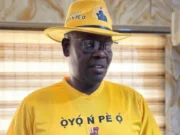Anyone living in Nigeria for the past 30 years and paying even a whisper of attention to the socioeconomic upheavals rocking the country will tell you that only drastic, disruptive, and radical reforms can free the country from its various shackles and manacles. That person will likely tell you that as far as Nigeria is concerned, seismic reforms that will upend the status quo of all facets of the nation’s life are long overdue.
In fact, you will be told that reforms needed to overhaul the nation’s economic landscape will potentially disrupt and destroy some businesses while leaving the vulnerable acutely worse off—perhaps temporarily. Indeed, that patriot of the highest order will further add that only a president who’s not fixated on re-election will embark on those audacious and ambitious reforms in his first term. “The resistance such a president will face and confront will likely discourage any future politician from stepping on the toes of the powerful individuals in the country in the name of reform,” he will point out blankly. Of course, the delay in the smooth passage of the vital Petroleum Industrial Act (PIA) for twenty years had politics written all over it.
Similarly, the inability of successive administrations to have Steve Oronsaye’s commission report implemented equally has politics written all over it. In effect, the Oronsaye report had and continues to clash with vested interests who keep using political gimmicks to thwart the plan despite a series of efforts to make it work. In essence, the inability and unwillingness of Nigerian leaders to have the country restructured along fiscal federalism equally has politics written all over it. Finally, there’s a reason the debate over resource control hasn’t been met with the urgency it needed.
In The Trouble with Nigeria, Chinua Achebe asserted that for lasting change to take effect in Nigeria, it must be followed up with a radical program of social and economic re-organisation or at least a well-conceived and consistent agenda of reform, which Nigeria stood, and stands, in dire need of. That reform is, in other words, exactly what the President, Bola Ahmed Tinubu, has embarked on since he took office in 2023. Proclaiming the removal of the fuel subsidy on the same day he took office swiftly brought him on a collision course with the powerful individuals and millions of Nigerians who would soon suffer the ripple effect of that decision. Added to that arbitrary removal was the decision to allow the market to decide and determine the value of the naira against other currencies. Instead of playing to the gallery, Bola Tinubu’s administration has forged an unusual path that has further dented his government’s popularity, acceptability, and credibility.
TAX REFORMS BILL SPARKS HEATED DEBATE IN THE SENATE
Familiar with that headline? Absolutely. This week, Nigerians woke up to the chaotic debate over the passage of the contentious tax reform bills in the Senate. The debate, typical of the Nigerian style, had little to do with the content of the document. When resistance towards the bill failed, opponents decided to trudge the familiar path of ethnic sentiment and tribal prejudice. The tax reform bills are ambitious and audacious efforts of the Nigerian government aimed at addressing multiple taxation while streamlining tax administration for optimal efficiency. Tinubu’s tax reforms committee, headed by tax expert Professor Taiwo Oyedele, after almost a year of meeting, deliberating, brainstorming, and consulting with critical stakeholders, finally presented the reforms that has brought to the frontline the Nigeria’s dirty linens. In four separate bills, the committee recommended a series of dramatic changes to the country’s taxation and tax administration, one that was deemed progressive, innovative, and adaptive in all senses.
Despite the controversy that has trailed the tax reforms, none of the opponents have faulted its ability to revamp the nation’s ailing tax administration, which has potentially crippled businesses while stifling economic growth. First, it’s important to understand the current National Tax Distribution system. Monthly, all taxes accrued by the 36 states and FCT are remitted to the Federal Inland Revenue, which the reforms seek to rename: Nigerian Revenue Service. In return, the federal government then redistributes these funds on the premise of the Value Added Tax distribution rules. Here is the sharing formula: Of the 100% tax generated throughout the country, FG takes the paltry 15%, the state governments cut the princely 50%, while the remaining 35% goes to the 774 local governments. Imagine that N100M is generated: FG takes 15% (N15M), followed by states with 50% equivalent of N50M, while LGAs share 35% (N35M). It is also important to note that the 50% allocated to the 36 states and FCT is further divided into three component parts but not equally shared.
The share of what each state takes is determined by a certain rule of engagement. This arrangement also plays a similar role in the local government as well. The States and LGs Allocation sharing template: EQUALITY: 50%, POPULATION: 30%, and DERIVATION: 20%. By equality, it means that, from the total generated taxes, 50% (N50M) is allocated to states and FCT. Under this sharing arrangement, 50% of this N50M is evenly distributed among all the states. Without exception, all the 36 states and FCT enjoyed this package without fear or favor. For the population, the size of the state determines what goes into their coffers. In other words, states with higher populations receive more whilst the rest is shared among those with smaller populations. As for derivation, states with higher tax contributions to the federal tax account receive more, while those with smaller contributions receive less. That is, when a state makes a significant contribution to the federation account, it stands a chance of enjoying more than those with little contributions. Tinubu’s tax reforms have upended this arrangement by allocating 10% of the taxes generated to the FG down from 15%, while state governments’ share has risen from 50% to 55%, up by 5%, leaving local governments with the remaining 35%.
So, what’s the bone of contention? DERIVATION. With the tax reform bills, states will only share from the federal account based on their consumption level. By this, it means a state like Kano, where a religious police is notorious for destroying beer, will see a drastic reduction in its VAT. It also means states will now have to work creatively and innovatively in revenue generation as against relying on the federal government feeding bottle for survival. Hard pills to swallow for states that considered the federal government as the cheerful giver.
For us in Oyo State, this is good news. Consumption, for instance, has a direct correlation to the economic buoyancy of a state, a people, or a nation. Consumption, in other words, is one of the markers of economic prosperity. By the way, consumption is equally connected to production. A trick: no nation ever consumes all it produces nor produces all it consumes. Here the principle of interdependence plays out vividly. Given our size and potential, we must start to rethink our economic model, one that takes into cognizance our comparative advantage in agriculture and mineral resources. Rather than joining the bandwagon, we in Oyo State must roll up our sleeves, put on our thinking caps and get to work.
OYO101 is Muftau Gbadegesin’s opinion about issues affecting the Oyo state and is published every Saturday. He can be reached via @Upliftnuggets on X, muftaugbadegesin@gmail.com, and 09065176850.





































